In the evolving landscape of North African manufacturing, cocoa butter has become one of the most crucial ingredients driving the confectionery, bakery, and cosmetics sectors. Libya, despite its dynamic and sometimes challenging industrial environment, is steadily strengthening its food production and processing capabilities. For factory owners, procurement managers, and production supervisors, securing a reliable cocoa butter supplier in Libya is more than a sourcing task—it’s a strategic decision that affects production quality, efficiency, and long-term profitability.
At MT Royal, we’ve worked with manufacturers across the MENA region, helping them source high-quality cocoa butter and related products that meet global standards. This article explores the industrial sourcing considerations, technical aspects, and manufacturing implications of cocoa butter in Libya, offering practical insights and supplier strategies tailored for industrial operations.
Understanding Cocoa Butter and Its Industrial Importance
Cocoa butter—also known as the fat extracted from cocoa beans—is a natural, creamy substance prized for its texture, stability, and mouthfeel. In industrial settings, it’s used far beyond chocolate production; it plays vital roles in bakery formulations, ice cream bases, pharmaceutical coatings, and even cosmetic emulsions.
In food manufacturing, cocoa butter contributes to:
- Texture and consistency: providing the signature snap in chocolate bars and a smooth melt-in-mouth finish.
- Shelf-life stability: enhancing product preservation due to its resistance to oxidation.
- Thermal properties: with a melting point close to body temperature, it ensures desirable sensory characteristics.
In cosmetics, it’s valued for emollient qualities, helping create soft, skin-compatible formulations. For industrial buyers in Libya, understanding these performance characteristics is key to selecting the right supplier.
Cocoa Butter Market in Libya: An Emerging Segment
Libya’s manufacturing sector, though recovering from infrastructure and import challenges, shows steady progress. The food and beverage industry, in particular, has become increasingly sophisticated, demanding ingredients that meet international food safety and consistency standards. Cocoa butter, as a core fat base, is now integral to the expansion of local confectionery production lines.
Industrial Drivers in the Libyan Market
- Growing chocolate and sweet manufacturing capacity
Domestic brands and private-label factories are expanding production to cater to rising local demand and export potential to neighboring countries. - Diversification into cosmetics and pharmaceuticals
Cocoa butter’s versatility allows Libyan manufacturers to integrate it into creams, balms, and lotions—an area experiencing strong growth. - Shift toward imported, quality-certified raw materials
Procurement teams increasingly prioritize traceability, sustainability, and quality assurance—areas where reputable suppliers like MT Royal play a critical role.
Technical Characteristics: Why Cocoa Butter Quality Matters
From a production perspective, not all cocoa butter is created equal. Industrial buyers in Libya must evaluate parameters that influence both processing behavior and final product quality.
| Parameter | Industrial Significance |
|---|---|
| Free Fatty Acid (FFA) content | Determines purity and shelf-life; lower values (<1%) ensure stability. |
| Iodine Value (IV) | Indicates unsaturation; affects hardness and crystallization. |
| Saponification Value | Reflects average molecular weight of fatty acids—important for cosmetics. |
| Color and aroma | Essential for flavor-sensitive confectionery applications. |
| Melting Point Range | Impacts tempering behavior in chocolate manufacturing. |
Premium European-origin cocoa butter, such as that from Spanish brands like Latamarko, typically excels in all these aspects—offering consistent texture, purity, and processing performance ideal for industrial use.
Sourcing Cocoa Butter for Industrial Manufacturing in Libya
Procurement managers face a multifaceted challenge: ensuring steady supply, cost control, and quality reliability in a market still stabilizing post-global disruptions. Sourcing cocoa butter in Libya demands balancing these factors while maintaining flexibility across import channels.
1. Supplier Reliability and Certification
Factories must work with suppliers who provide:
- Food-grade certifications (ISO, HACCP, Halal)
- Batch traceability and documentation
- Consistent delivery schedules
- Stable pricing and packaging options
At MT Royal, we understand the critical nature of these standards. We supply manufacturers with globally trusted brands, ensuring that every shipment meets industrial and regulatory requirements.
2. Storage and Handling Conditions
Cocoa butter is sensitive to heat and contamination. Proper storage (below 25°C, away from moisture) and airtight packaging preserve quality. Suppliers with dedicated cold storage and logistics expertise, like MT Royal’s network, add a layer of assurance for Libyan manufacturers.
3. Bulk vs. Customized Orders
Libyan producers range from small confectionery startups to large-scale industrial plants. Bulk supply may offer cost advantages, but customized packaging or specific melting point variants might better suit specialized operations. Experienced suppliers can tailor solutions to each production line’s requirements.
Manufacturing Insights: Cocoa Butter on the Production Floor
In practice, cocoa butter’s role on the manufacturing line extends beyond being an ingredient—it’s a functional component influencing efficiency, energy use, and output quality.
Chocolate Production
Cocoa butter defines chocolate’s viscosity, crystallization, and appearance. A high-quality batch ensures consistent tempering and prevents bloom (the white film that forms due to fat migration). Factory engineers monitor parameters like particle size distribution and temperature control, knowing that even slight deviations can alter texture and gloss.
Bakery and Pastry Applications
Cocoa butter provides flakiness, richness, and aroma in premium pastries. Industrial-scale baking operations rely on stable melting profiles to ensure uniform dough structure and moisture retention.
Cosmetics and Pharmaceutical Manufacturing
In creams and ointments, cocoa butter acts as a carrier fat, enhancing spreadability and absorption. Pharmaceutical facilities appreciate its non-reactivity and biocompatibility, critical for topical formulations.
We’ve seen production supervisors in multi-sector facilities benefit greatly from sourcing multi-purpose cocoa butter—reducing storage complexity and procurement redundancy.
Spanish Precision in Cocoa Butter: The Latamarko Standard
Spanish engineering and food processing expertise have earned a global reputation for precision and consistency. Brands like Latamarko represent that legacy, producing cocoa butter that meets the most stringent European standards.
Latamarko cocoa butter stands out due to:
- Refined texture and color uniformity
- Stable crystal structure—ideal for high-speed chocolate molding lines
- Low FFA levels ensuring long shelf-life and oxidative stability
- Compliance with EU sustainability and origin-traceability protocols
For Libyan buyers, this translates into a premium ingredient that reduces production risk and ensures consumer satisfaction—batch after batch.
Common Procurement Challenges in Libya’s Industrial Cocoa Market
Despite the potential, industrial procurement in Libya faces several real-world issues:
- Logistics and port delays affecting raw material imports
- Currency fluctuations impacting cost-per-unit consistency
- Limited local testing facilities, leading to reliance on supplier documentation
- Storage infrastructure constraints, especially in warmer climates
How to Mitigate These Challenges
- Partner only with suppliers that maintain regional warehousing and reliable shipping networks.
- Negotiate long-term contracts with fixed exchange terms where possible.
- Request sample batches for factory trials before full-scale procurement.
- Implement standard operating procedures (SOPs) for handling and storage within your facility.
MT Royal’s regional experience allows us to anticipate and minimize these sourcing challenges for our clients, ensuring smoother import and production workflows.
Pro Tips for Procurement Managers
Drawing from our experience in supplying cocoa butter to industrial manufacturers across the Middle East and North Africa:
- Benchmark suppliers regularly: don’t rely solely on price—compare based on quality consistency and responsiveness.
- Integrate supplier performance KPIs: track delivery accuracy, claim resolution, and documentation compliance.
- Plan for seasonality: cocoa butter prices fluctuate globally; secure contracts ahead of high-demand periods.
- Audit product compatibility: conduct small-scale production tests before onboarding a new supplier.
- Diversify sourcing origins: mix suppliers from Africa, Europe, and Asia for price stability and risk mitigation.
Industrial Trends: Cocoa Butter in the Global and Regional Context
The global cocoa butter market is evolving toward sustainability and traceability, with major manufacturers committing to deforestation-free and fair-trade sourcing. Libyan buyers increasingly align with these standards, not only for compliance but also for brand reputation in export markets.
Regional Shifts
- North Africa’s food manufacturing hubs—especially Egypt, Tunisia, and Morocco—are expanding chocolate production capacities, influencing pricing and logistics in neighboring Libya.
- Growing investment in cold-chain infrastructure is improving ingredient storage and transport reliability.
- Demand for natural and non-deodorized cocoa butter is rising in artisanal and premium confectionery sectors.
These trends suggest that Libya’s cocoa butter supply chain will become more sophisticated, integrated, and quality-focused in the coming years.
Frequently Asked Questions (FAQ)
1. What type of cocoa butter is best for industrial use in Libya?
Deodorized cocoa butter with consistent melting behavior and low FFA levels is preferred for industrial applications.
2. How should cocoa butter be stored in hot climates like Libya?
Keep in airtight packaging, below 25°C, and away from direct sunlight to avoid melting or oxidation.
3. Is European-origin cocoa butter worth the premium?
Yes, especially for manufacturers prioritizing consistency, compliance, and sensory quality—Spanish brands like Latamarko are a benchmark.
4. Can cocoa butter substitutes be used?
Some manufacturers use CBE or CBS alternatives to manage cost, but genuine cocoa butter remains unmatched in texture and flavor performance.
5. How can Libyan factories ensure uninterrupted supply?
Work with regional suppliers like MT Royal who offer strategic stockholding and flexible shipment planning.
Final Thought
Industrial success in Libya doesn’t rely solely on advanced machinery—it depends on the integrity of materials, the efficiency of sourcing, and the reliability of partners. Cocoa butter may seem like a simple ingredient, but for manufacturers across confectionery, bakery, and cosmetics, it represents the foundation of texture, taste, and brand identity.
For Libyan production facilities seeking growth and consistency, the journey begins with one decision: choosing a cocoa butter supplier who understands industrial demands as deeply as you understand your production line.
And as we’ve seen time and again, that difference in understanding can transform not just a product—but an entire brand.
latamarko alkalized cocoa powder lm60
cocoa powder for chocolate production-Best price
Food industry raw materials – list of products
Types of Gelatin from Turkish Manufacturer
Alkalized Cocoa Powder Bulk Supplier


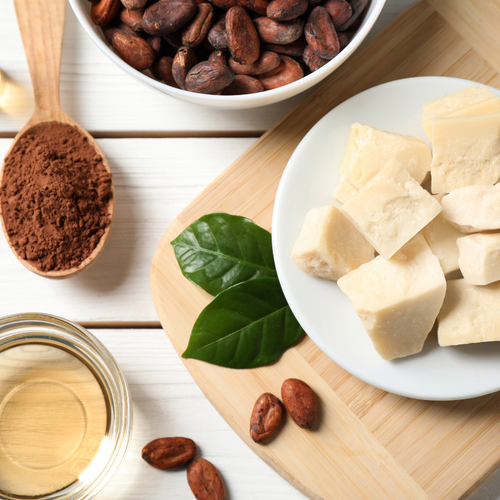
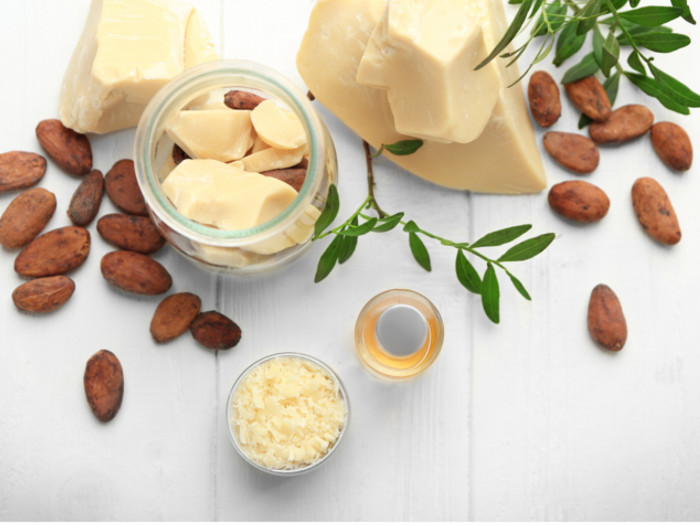
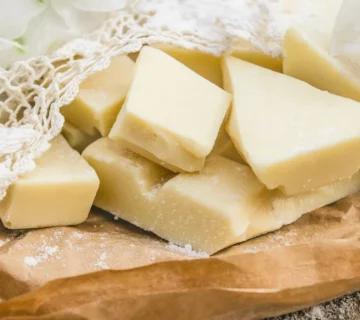
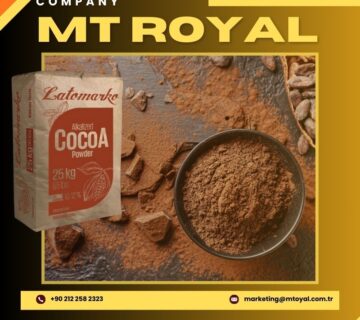
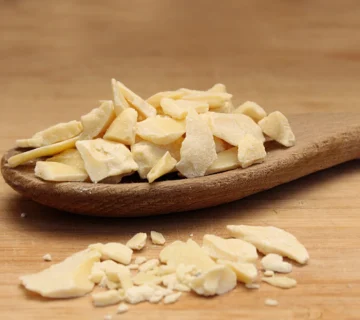
No comment